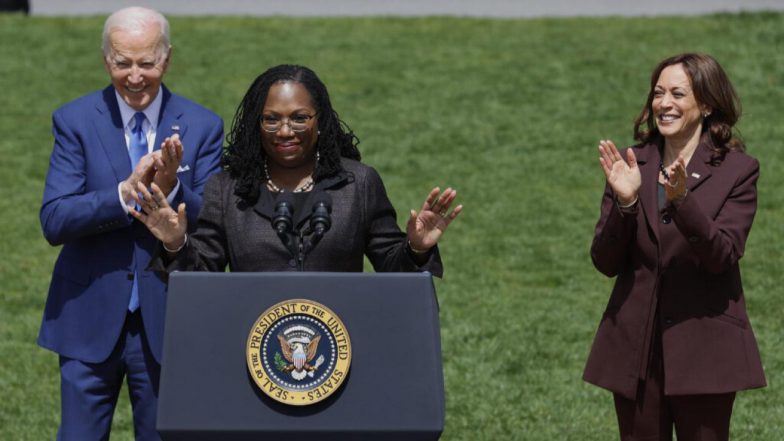News
June 30, 2022 – 12:00 pm to 12:16 pm (ET)
Ketanji Brown Jackson was sworn in to the Supreme Court on Thursday, shattering a glass ceiling as the first Black woman on the nation’s highest court.
The 51-year-old Jackson is the court’s 116th justice, and she took the place of the justice she once worked for. Justice Stephen Breyer’s retirement was effective at noon.
Moments later, joined by her family, Jackson recited the two oaths required of Supreme Court justices, one administered by Breyer and the other by Chief Justice John Roberts.
“With a full heart, I accept the solemn responsibility of supporting and defending the Constitution of the United States and administering justice without fear or favor, so help me God,” Jackson said in a statement issued by the court. “I am truly grateful to be part of the promise of our great Nation. I extend my sincerest thanks to all of my new colleagues for their warm and gracious welcome.”
An unstable world could get even more dangerous if NATO does not remain strong and united, the head of the alliance said Thursday at the end of a summit where Western leaders labeled Russia “a direct threat” to the security of their nations.
During their three-day meeting in Madrid, NATO members confronted a geopolitical landscape marked by big-power competition and myriad threats, from cyberattacks to climate change. The leaders cast their sights around the world —- drawing a rebuke after accusing China of posing “serious challenges ” to global stability. But Russia’s invasion of Ukraine dominated the summit.
“We live in a more dangerous world and we live in a more unpredictable world, and we live in a world where we have a hot war going on in Europe,” NATO Secretary-General Jens Stoltenberg said. “At the same time, we also know that this can get worse.”
That is why the Western military alliance has a “core responsibility” to keep the war in Ukraine from spilling into other countries while making clear to Moscow that it would “protect every inch of NATO territory,” Stoltenberg said.
Over the years, I’ve been tempted to look for some sort of atmospheric savoir — a person or technology, a clever strategy or institution that could bail us out of the climate crisis.
It’s become abundantly clear that no such savior exists.
Thursday’s ruling from the US Supreme Court is a painful reminder of that.
Don’t be fooled, though. That the court limited the EPA’s power to push toward carbon neutrality is a massive blow. It sets the United States back in its efforts to eliminate fossil fuel pollution. That’s a task on which we already are decades behind. The world is likely to continue to become a more dangerous place — and a more unequal place — because of this decision.
Some details of the opinion are particularly troubling. In the 6-3 decision, the court rejected the idea that the US Environmental Protection Agency could use a sort of “system” thinking in its regulation of the power sector. Congress has not given the agency that authority, the court ruled.
June 30, 2022 – 6:00 pm to 7:00 pm (ET)

